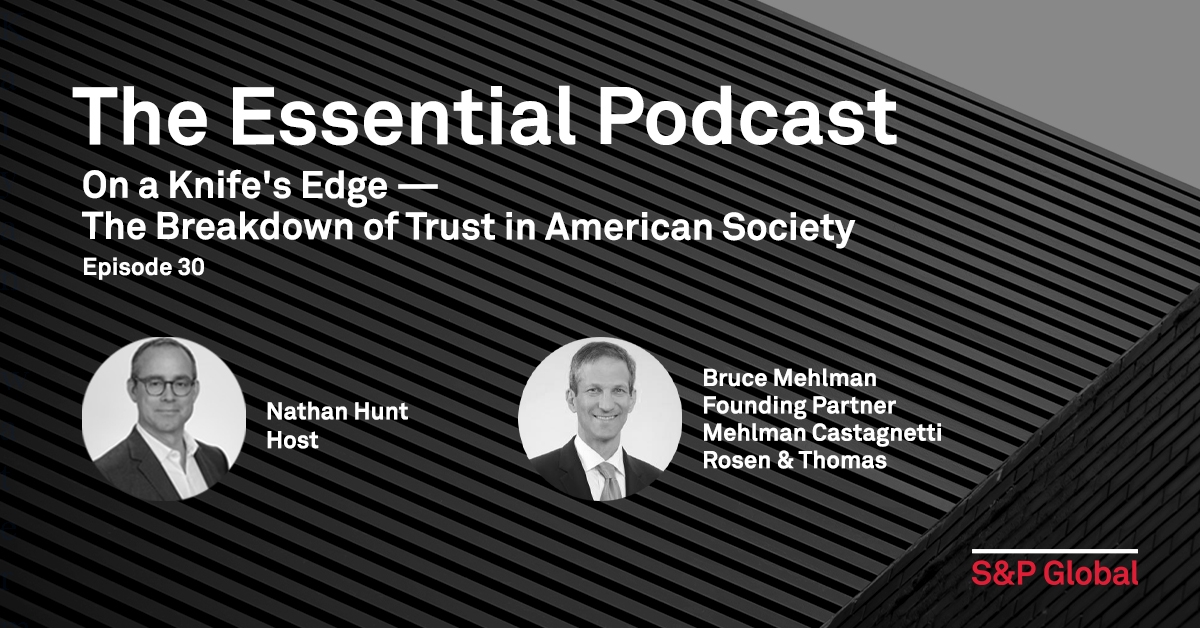Featured Topics
Featured Products
Events
S&P Global Offerings
Featured Topics
Featured Products
Events
S&P Global Offerings
Featured Topics
Featured Products
Events
S&P Global Offerings
Featured Topics
Featured Products
Events
Language
Featured Products
Ratings & Benchmarks
By Topic
Market Insights
About S&P Global
Corporate Responsibility
Culture & Engagement
Featured Products
Ratings & Benchmarks
By Topic
Market Insights
About S&P Global
Corporate Responsibility
Culture & Engagement
Podcast — 18 Feb, 2021

Bruce Mehlman, founding partner of the bipartisan Washington, D.C. lobbying firm Mehlman, Castagnetti, Rosen & Thomas, joins the Essential Podcast to discuss his latest quarterly review of the U.S. political and social landscape. He explores the greatest threat we face in 2021, which, to give a hint, isn't the coronavirus.
The Essential Podcast from S&P Global is dedicated to sharing essential intelligence with those working in and affected by financial markets. Host Nathan Hunt focuses on those issues of immediate importance to global financial markets – macroeconomic trends, the credit cycle, climate risk, energy transition, and global trade – in interviews with subject matter experts from around the world.
Listen and subscribe to this podcast on our Apple Podcasts, Spotify, Google Podcasts, Deezer, and our podcast page.